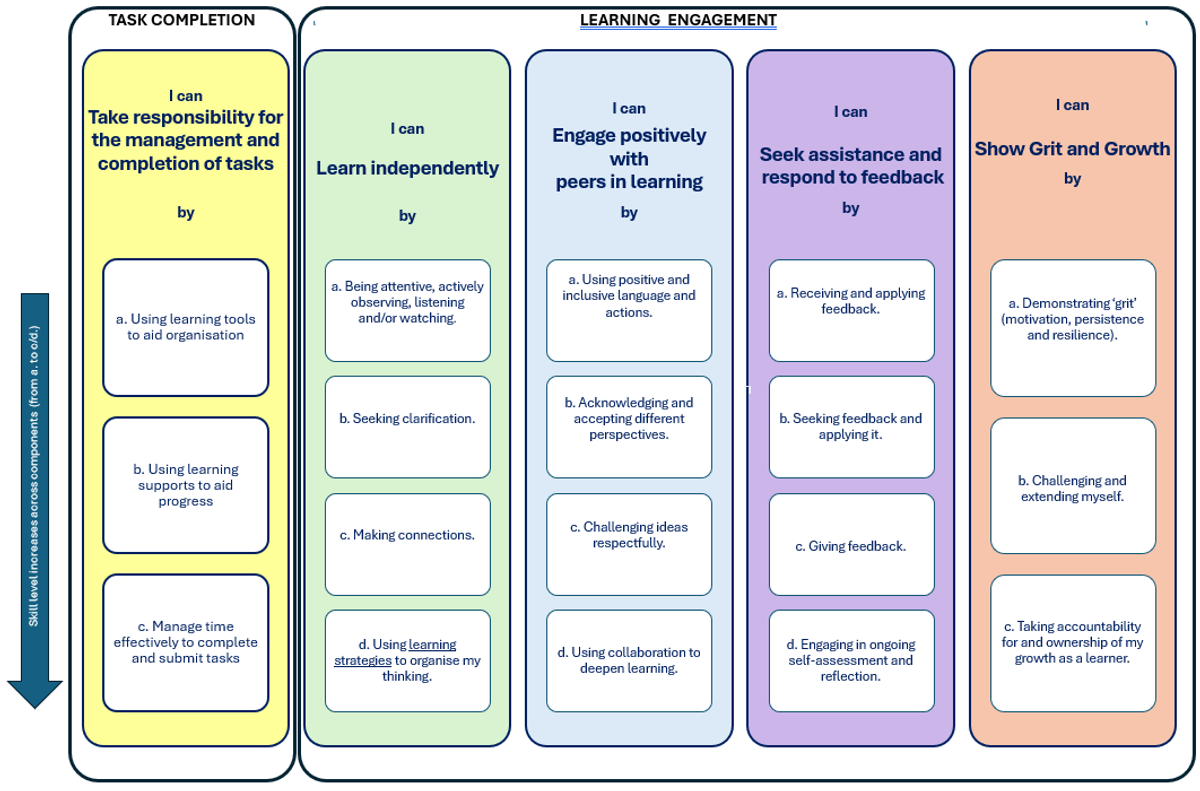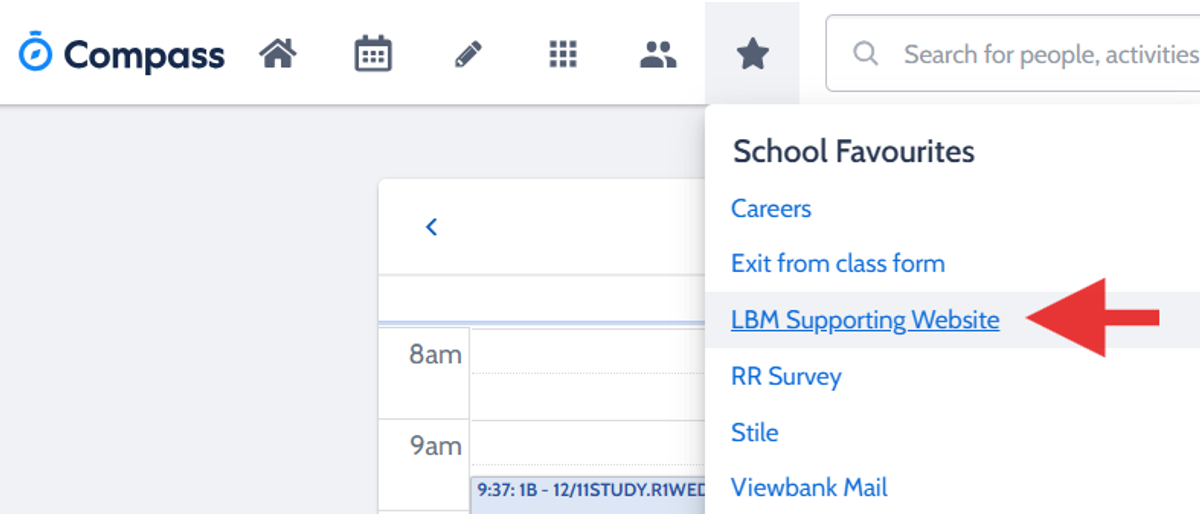Explaining our Learning Behaviours Continuum.

Learning behaviours are transferable, lifelong skills that are utilised by everyone to be successful
The Learning Behaviour Continuum has been updated in 2025! Check out this video for an overview: https://www.youtube.com/watch?v=UIOodoSEzP8-
Learning Behaviour Continuum Overview
Students and staff have co-created the Learning Behaviour continuum to support everyone to grow their skills to engage positively in their learning at school, outside of school and beyond. Learning behaviours are transferable, lifelong skills that are utilised by everyone to be successful, whatever role that they find themselves doing.
You`ve reached the middle of the year and have completed full cycle or Unit of Learning in all your subjects. Feedback and your own self-reflections are available in Readiness, Progress and Mastery Learning Phase Checkpoints on Compass.
What skills and learning behaviours have you used this semester?
What will you do next semester to build on these?
Your semester report also includes judgements that your teachers have made around your learning behaviours.
Did these judgements change from your Interim Report in that was released near the end of term 1?
Do you agree with these judgements?
Why, or why not?
Our learning behaviour focus this time: Showing grit and growth
Thesebehaviours are all about developing the skills to become an independent learner. You know where you`re going, how you`re going and have the skills, strategies and mindset to better deal with whatever comes your way. Beyond school, this means you`ll have the mindset to continue to grow and be able to respond to change.
Specifically, this time, we`re focusing on the ‘micro-behaviour’ c. Taking accountability for, and ownership of my growth as a learner
AT SCHOOL, recognising that you, rather than your teacher, is the person who is responsible for your learning, is a game-changer. This understanding is the key to unlocking how you grow as a learner.
Being able to reflect on your learning journey, and especially take note of the positive steps you`ve taken, are part of this. Spending some time thinking about the questions at the top of this article would be an example of you using this microbehaviour.
Of course, your teacher(s) and others in our learning community will always be available to support, encourage and provide feedback on your learning – especially when you`re finding something difficult. You are responsible for your learning, but you don`t do it alone.
BEYOND SCHOOL: Here`s a fact that you may not have thought about: learning is something that doesn`t stop when you leave school (or even after you finish any studies after school)!
Being able to effectively deal with change, and controlling how you respond to change, is a transferable, lifelong skill. When you leave Viewbank College, people like your teachers may not be around to support you - so you`re going to rely on the agency and accountability that you`ve developed here.
Good news, having the mindset and skills to be an effective, independent learner is what this behaviour (and the entire learning behaviour continuum) is all about. Being open to new experiences, recognising that learning can be incremental and having defined goals that you can work towards acheiving mean that you will be successful, regardless of what you find yourself doing in the future - GOOD LUCK, you know you`ve got this!
Here is what this micro-behaviour can look like at each level of the Positive Learning Behaviour Continuum.
Students can access additional supporting resources on the ‘LBM Supporting website*’, accessible via the Compass -School Favourites menu (Star at top right). This resource allows students to pinpoint their current level and provides example strategies to grow this learning.
*This is an internal website – accessible to students and staff only – ask your young person to show you.
If you have any specific, additional examples of what this behaviour can look like, or examples of where it is used, we would really like to hear from you. If you have any additional suggestions, questions or wonderings around this behaviour, or the Learning Behaviour Continuum itself, please email learningbehaviour@viewbank.vic.edu.au and we`ll be in touch.
John Patterson




